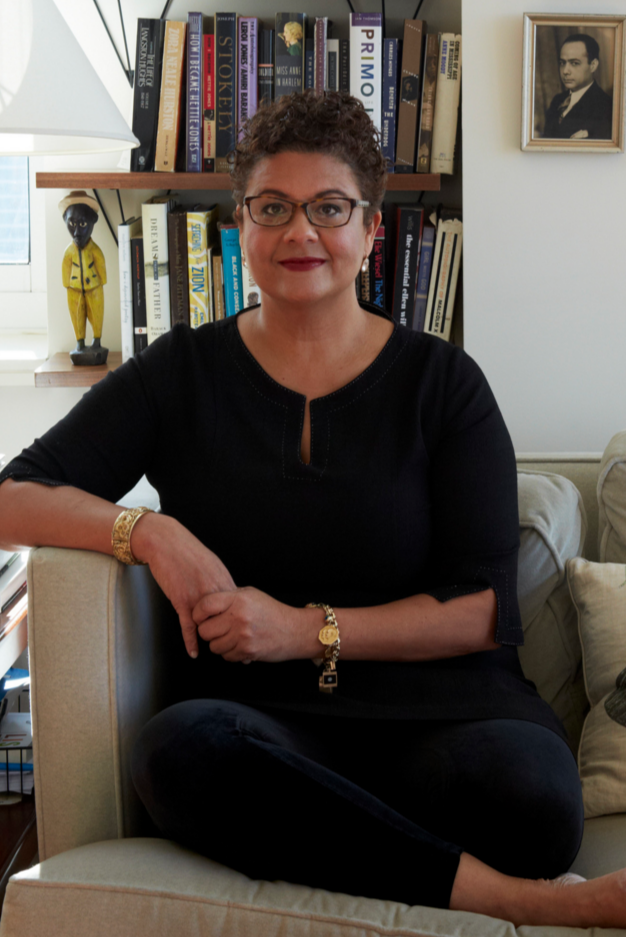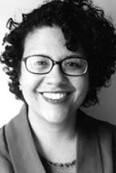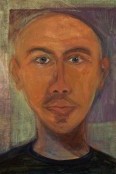“It’s a privilege to be on this journey.”
ELIZABETH ALEXANDER
Interviewed By: Kaveh Akbar
What have you been up to this week?
I’ve been getting my kids ready for school. I’m on leave this semester, and have been preparing for the transition back to my sons’ school years. That’s what it’s been all about.
Right, Solomon and Simon?
Yes. Solomon will be a senior in high school, and Simon will be a junior.
I read The Light of the World, and I feel like I already know them a little.
Yes, many people say that. It’s funny. When I do readings from the book now, I'm struck by how it really wasn’t a long time ago, but in the lives of young adolescents, a lot has changed.
Of course.
I’m struck by how much younger they feel to me when I read passages from the book in which they appear. They are amazing young men.
I remember when the first excerpt came out in The New Yorker, I read it and felt I had to read the whole book right then. And when I did go to read the book, I read the whole thing in a single evening. I just couldn’t put it down. Can you talk about what it was like sharing your very private experience of grief, of losing a husband, in a very public way with that first New Yorker excerpt?
Yes, it was quite a moment. Of course, the magazine has a lot of readers and the response was extremely overwhelming—not just in the way of saying, “I liked your piece,” not just in the way of saying something nice, but rather, a very, very deep and serious engagement. I got literally hundreds of emails from people that I knew and from people that I didn’t know. I remember when I looked at the galleys and actually saw my children’s names in print, I thought, “Okay, brace yourself. This is real. This is happening.”
And this thing that I didn’t ever intend to do in life—to put my personal life out there without any filter–had happened. It is a work of art. It is something that shapes. I’m glad that it happened in The New Yorker first because it provided a defined moment of knocking the wind out of me, and it also gave me the time to pull myself back together again before the book came out.
You could brace yourself a little bit before people read the whole thing.
Right. I continue to get emails and comments from people on my book tour. I continue to hear from people who want to talk about grief of different kinds. They want to talk about love, want to talk about culture, want to talk about first generation immigration, want to talk about the intimacy of lives with children, want to talk about art as a companion in life. There are so many different ways that folks have wanted to talk. Even the parts about food, people have connected with. I don’t know. I’m really just grateful that this story came through me, and that I was able to do the crafting work, and that it feels like a living thing. Poems are living things, too. I hear from people about the poems, too, but it’s a different tone with the book. The connection seems to have been more powerful.
There are so many communities in the book. There are so many different sets of people who loved Ficre.
A friend of mine gave me a really good example of how he thought of that working. He said, “If you imagine sets of rings and of audiences, the first ring is of our friends, the second ring is of people who were in our immediate community, the third ring is of people who extended outward, and from there it moves out to people who never met him, but who want to find their way in.” Everybody is looking at the same thing, but they’re coming to it with different needs and for different reasons.
That’s really wonderful. One of my favorite poems of yours, to loop into poetry, is “Stray”—
Oh, “Stray”! I’m so glad you love that poem. I love that poem, too.
Yeah! It's similar to your memoir in that it really captures the way that family and communities almost become a redemptiveness, a salvation, for you. It talks about the way that you and Ficre found each other. That’s not to say “found each other” in the cliché, tired way, but almost like an, “Oh, there you are,” sort of sentiment.
I don’t think I’ve ever been asked about that poem! Here’s what I’ll say—I think that we understand intimacy between lovers, intimacy between two people, intimacy that is about two bodies and the pull of two bodies together, but a really interesting topic alongside that is intimacy within families, the intimacy that parents have with their children. And that’s something that I was mining and exploring in The Light of the World, because that intimacy was both intact and wrecked when Ficre died.
So, when I think about “Stray,” I think about the intimacy of family life–the story of how what happened between two people, two bodies being drawn to each other, brings a family together. I was a stray man before I met you, and then I met you and I was no longer a stray man, I belonged to something.
But I also think that, maybe, there is danger around the edges of that family. Those dogs, maybe they're feral, maybe they’re not. This is the first time I’m thinking about this, but families are vulnerable, human beings are vulnerable, and that sense of, “How do we protect our children and protect each other? How do we protect our unit from what feels dangerous at the margins” is all in there, too. You can’t totally protect yourselves from the margins. The family is walking on the beach and somebody is going to get bitten by a feral dog.
Ultimately, the family stands within the dark pool your words make. There, there is a space that is “the family space,” but even when we feel safe in family, we’re never really safe, which makes the sense of safety, and what it means to commit to and take care of other beings, all the more poignant.
I love that. I love that a lot. In another poem, you quote Yusef Komunyakaa saying, “Don’t write what you know, write what you’re willing to discover.”
Yes.
In writing a poem about that danger at the edges, and writing a book like The Light of the World , you're really taking Komunyakaa’s credo seriously, you're exploring those unlit places.
Well, it really, really is true to me. I never set out knowing where I’m going because part of what's so exciting and wonderful about being a writer is that you start in one place, and you just don’t know where the road will lead. It might feel safe to avoid that; it might feel safer than walking out in the middle of traffic.
Sure.
And sometimes you’re lost in the woods, and sometimes you’re loath to get started, and sometimes things are written terribly, and sometimes you labor for years trying to elicit an image to come to something that is deep and true, but it’s a privilege to be on this journey, as opposed to a mission of certainty. I’ve been thinking about a song that I really love, the Rubén Blades and Willie Colón version of the song “Pedro Navaja” where there’s a refrain, “la vida te da sorpresas, sorpresas te da la vida ay dios.” “Life gives you surprises, surprises, oh my god.” That’s just what’s so amazing about the privilege of being alive as a conscious person in an art form.
That’s so beautifully said. One of the things that has impressed people so much about the memoir is something that people have long been impressed by about your poetry: the scope. In the memoir, you talk about art, you talk about food, you talk about community, you talk about family, you talk about intimacy, you talk about grief, you talk about music. All of that’s in there, but it’s all tethered to your singular voice, and I think that’s very true of your poetry, too. You have poems about art, you have poems about social issues, you have poems about your family, but they all seem to emanate from a single source.
I have a friend who says, “A relationship is a relationship is a relationship,” by which she means that we sometimes make a fetish of a romantic relationship and forget that who we are in all of our relationships has a kind of consistency to it. Having a lover is different from having a child is different from having a parent is different from having a friend, but it means that there is some consistency of self and behavior in intimate spaces. That's a bit reassuring to remember.
Or, as my mother says, “You live in your house.” In other words, you can’t lose yourself totally. You may lose some aspect of yourself, but there is a consistency to who we are. Think about when somebody tells us that we have a quality that they remember in us from when we were very, very little. I certainly see that in my own kids. As they grow and as they change, sometimes they are so essentially their fundamental selves. It’s fascinating. Maybe that’s what the soul is. Maybe that’s what essence is. We all have a core. We orbit out of that core sometimes.
I just read a New York Times review of some new Donald Trump biography, and one of the quotes in it—
Was it about how he was always a grandiose asshole?
Haha, kind of! He says he’s been basically the same person since first grade. It's funny how similar the words sound to what you just said, but how different the meaning.
That’s probably the closest I’ll ever come to agreeing with him.
Haha, right. To switch gears a little bit, I wanted to talk about another poem, an older one, “Today’s News.” You write, “I didn’t want to write a poem that said blackness / is because we know better than anyone / that we are not one or ten or ten thousand things / we could count ourselves forever / and never agree on the number.” And I think that’s so relevant in the midst of this moment in which Black artists are being asked to speak for their entire community every time they are asked to speak. I appreciate the poem for the way it cautions against that.
Look, my whole adult life, and certainly my parents’ whole adult lives, I think the struggle has moved forward in this regard. Black people are not always thinking about race. People of color are not always wondering what white people think of us. It’s about acknowledging our complex humanity. It’s really as simple as that, you know? What is our complex humanity and do we recognize that in other human beings? If we could get there and stay there, we would be in good shape, but we’re not there yet. I think that the particularities and the quirks of poetry and poetic language is what makes the singularity of poetic voice. If someone is a successful poet, it’s measured at once by how much they sound like themselves, and how much they don’t sound like anybody else.
That’s interesting.
We’re talking about poetry in particular. Perhaps that’s a space where complex humanity can be recognized, because it’s how we distinguish poems from each other.
That’s very interesting. I think one of the ways your poetry is most complex is the way its geographies are so various. You write often of the places you travel, this sort of cartography-by-poem.
Poetry is a way of knowing where I am in space. It’s a companion. It’s a way of moving through and knowing what I’m experiencing, so it seems only natural and wonderful that my own curiosities about the world and about other people are something that poetry can facilitate. It’s almost like a traveler’s notebook—a way of knowing, a companion on journeys.
Let’s put it that way. I’m very much an Americanist and I’m very rooted in African American experience in the United States. But I’m also really, really interested in what that connects to. I’m very, very porous. What is the Black diaspora? Well, there are different ways that you can think about what the Black diaspora is. I’m interested in all of the ongoing and renewable first-generation myths that have come to this country. It’s one of the things that is incredibly exciting and interesting about America. How do we connect to other people on the planet? All of those curiosities are kind of how I move, and am lead, through life, and sometimes I learn about, and through, other people’s cultures, and sometimes I learn about, and from, the people themselves.
Sure.
So, poetry is the companion.
I love the idea of the renewability of first-generation mythologies. From the book, it sounds like you and Ficre have a wide, diverse community of friends and peers.
I think some of it is just how I’m wired. I had a grandmother who was born in Alabama, then spent her high school years in Washington D.C. She used to talk about how she loved the idea of embassies, how she would go and sit on the steps of the embassies to know that the rest of the world was there. Having grown up in the segregated South, she used the power of her imagination to imagine herself belonging to something larger. Being human, being verbal, being interested, being curious. In 1922, she was studying and wrote to a university in Denmark. She said, “I am what is known as an American Negro, I imagine you’ve never had anyone like me come to study before.” They invited her to come study.
That’s incredible.
Yes! That’s who she was, and she was my guiding light. She believed that you should be open and curious, but also curious in the right way. Not to make other people or their culture a fetish. It’s a big old world, a big old beautiful world. That's what's so wonderful in the United States–it’s a big old beautiful world right here.
Yes.
And that’s one of the things I’m finding with The Light of the World that I love. A lot of young people, first-generation young people, have really been connecting with the book, have really been connecting with Ficre as a figure who says to them, “Yes, you have to work hard, but you don’t have to become a lawyer or engineer when you come to America.”
My father moved here when he was in his twenties, and I was actually born in Tehran, though I’ve lived in the US almost all of my life. Maybe one of the reasons I was so drawn to Ficre is because he came here with this ravenous hunger for beauty, whether it was in food, or in painting, or in music, or in people. He built a life out of this hunger for beauty, a life anyone would envy.
Well, That’s lovely to hear. That’s so lovely to hear.
We’re coming up on our time. Do you have anything you want to leave people with?
You know, we’ve covered some interesting angles that I haven’t talked about with other people before. I don’t want to get into advice mode. If there’s anything, I guess, I just want to say that being a poet is the most important part of my craft, but at the same time, one of the things I’ve learned from writing The Light of the World is to not be so precious about craft so as to close yourself off from making work that’s new. Sometimes life really does take you to a new place, and that has its analog in art-making as well.
Interview Posted: February 22, 2016
MORE FROM DIVEDAPPER. (Drag left)





















































































